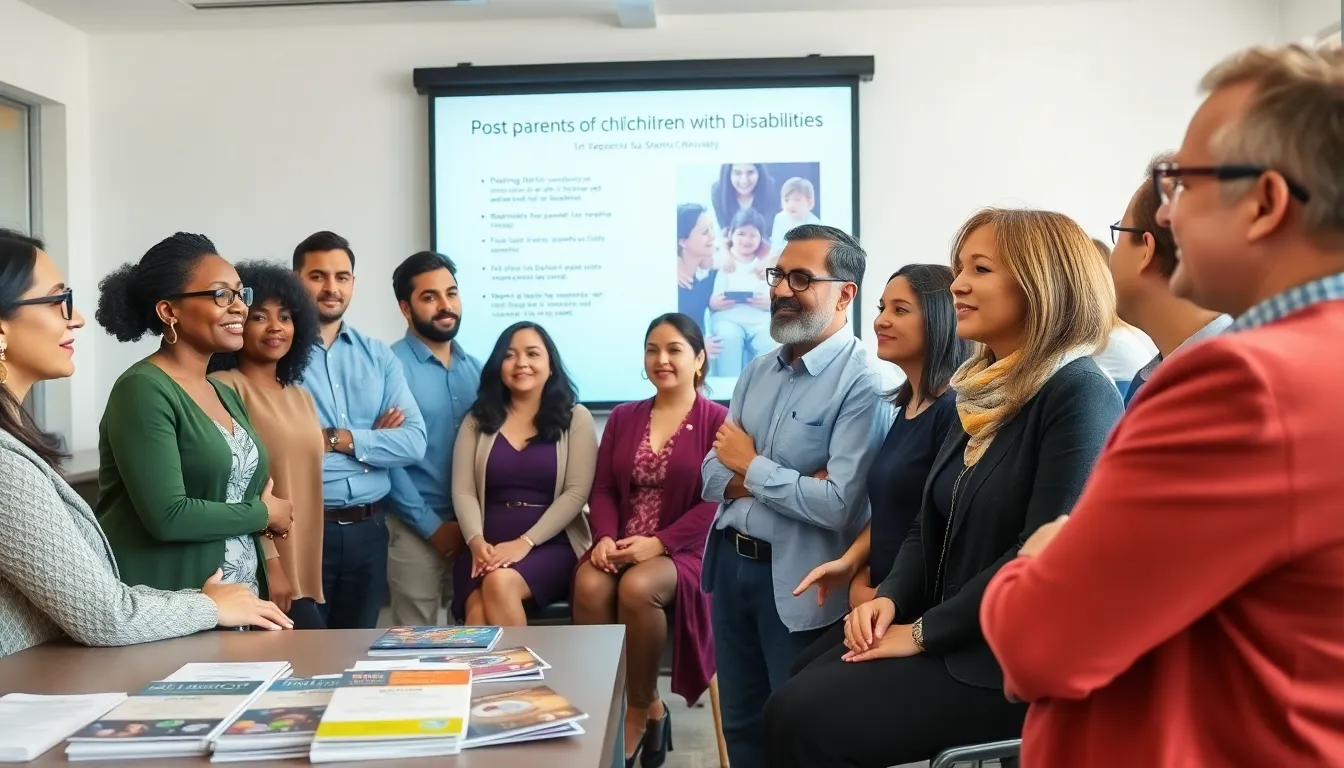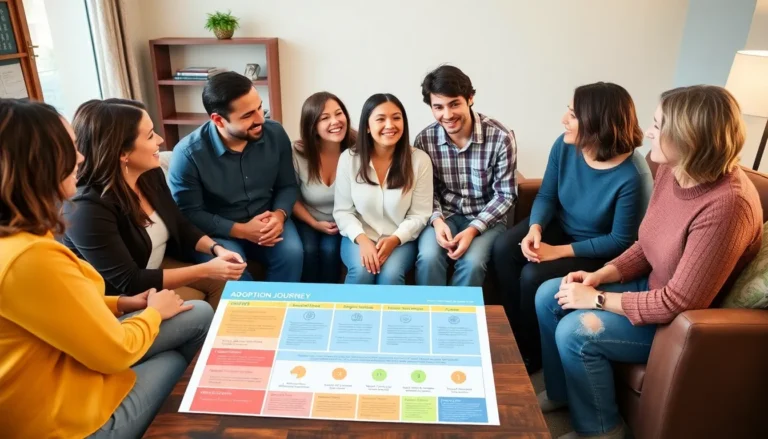Table of Contents
ToggleRaising a child with a disability can feel like embarking on a roller coaster ride, complete with unexpected twists, heartwarming highs, and the occasional gut-wrenching dip. Parents enter this exhilarating journey with a mix of love, determination, and a touch of apprehension. Every day brings new challenges, joys, and the critical need for knowledge and support. But fear not. This guide tackles the multifaceted experience of parents managing the complexities of disabilities while empowering them to discover resources, foster resilience, and eventually thrive. Let’s immerse.
Understanding Disabilities: Types and Impacts

When discussing disabilities, understanding the various types is a crucial first step. Disabilities can be broadly categorized into physical, intellectual, sensory, and developmental groups. Physical disabilities may affect mobility, while intellectual disabilities can impact cognitive functioning and learning capacities. Sensory disabilities could include vision or hearing impairments that significantly alter how a child interacts with the world. Developmental disabilities encompass a range of conditions, such as Autism Spectrum Disorder and Down syndrome, which influence a child’s growth and behavior.
The impacts of these disabilities extend beyond the individual, deeply affecting family dynamics, social interactions, and overall mental health. Families often find themselves grappling with societal expectations and misconceptions, leading to a need for ongoing education and clarity about what each disability entails. Understanding the diverse landscape of disabilities fosters empathy and equips parents with the knowledge to advocate effectively for their children.
Navigating the Emotional Landscape
Parents of children with disabilities frequently experience a whirlwind of emotions. On one hand, there’s love, an overwhelming, unshakeable love for their child. On the other, feelings of frustration, grief, and sometimes guilt may emerge as they face challenges that their peers might not encounter. It is imperative to acknowledge these emotions without judgment.
Support groups can play a vital role in navigating this emotional terrain. By connecting with other parents who understand the unique struggles and triumphs, individuals find a sense of solidarity. Besides, seeking professional counseling can offer strategies for coping and emotional management. Mindfulness practices and self-care routines also serve as essential tools, helping parents maintain mental and emotional equilibrium.
Accessing Resources and Support Systems
Finding the right resources can feel like searching for a needle in a haystack. But, a wealth of support systems exists for parents of children with disabilities. Local and national organizations, such as the National Parent Technical Assistance Center, provide advocates and specialized information. These organizations cater to specific disabilities and can guide families through the complexities of special education services and legal requirements.
Also, online forums and social media groups have transformed the way parents connect. Their ability to share experiences, tips, and resources creates a vibrant community that can serve as an invaluable lifeline. Finally, local colleges and universities may offer workshops and training sessions designed to educate parents and caregivers about various disabilities and effective strategies for support.
Advocacy: Empowering Parents and Children
Advocacy stands as a cornerstone in empowering both parents and children with disabilities. Parents must arm themselves with knowledge about their child’s rights, understanding laws like the Individuals with Disabilities Education Act (IDEA) is crucial. This act guarantees educational rights and services for children with disabilities, creating a legal foundation for parents to build upon.
Also, instilling advocacy skills in children prepares them for a future where they can stand up for their needs. Teaching children how to articulate their feelings and understand their rights fosters independence and confidence. Parent-led advocacy not only enhances individual children’s experiences but contributes to broader societal change, eventually benefiting the entire community.
Building a Supportive Community
Creating a strong support network can significantly ease the journey for parents. This community can consist of family members, friends, neighbors, and other parents who understand the hurdles involved. Local community centers often host gatherings or workshops designed for families with children with disabilities, providing opportunities for connection and freshness.
Inclusive social environments, like adaptive sports teams or art classes, encourage interaction among children, fostering friendships and reducing feelings of isolation. Parents often find that these settings not only benefit their children, allowing them to engage fully with peers but also serve as an emotional refuge where they can share ideas and resources.
Strategies for Daily Life and Resilience
Daily life with a child who has a disability can pose unique challenges. Establishing routines can be incredibly beneficial, providing structure and predictability that children thrive on. Using visual schedules can help children understand what to expect throughout the day, reducing anxiety.
Also, fostering independence in children through age-appropriate tasks builds their confidence. Simple chores or self-care activities can empower a child feeling overwhelmed by disabilities. Parents should also consider engaging in adaptive techniques, such as using specialized tools or technology designed to assist children in their daily activities. Resilience is cultivated through these small victories, enabling children to face obstacles with optimism.






